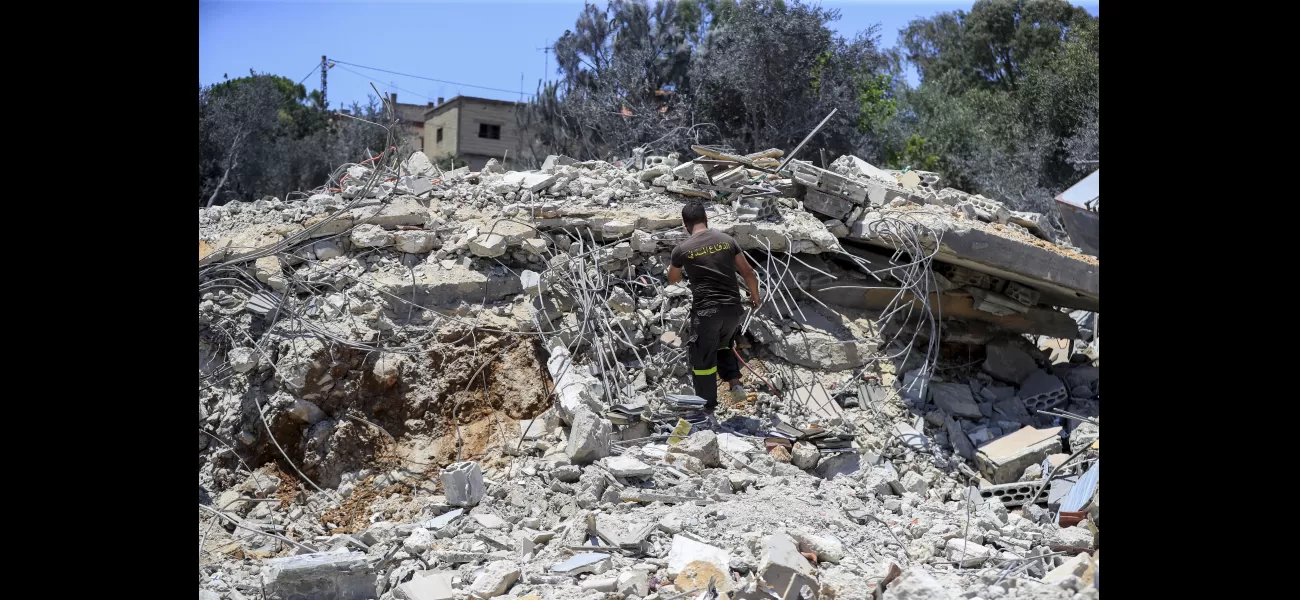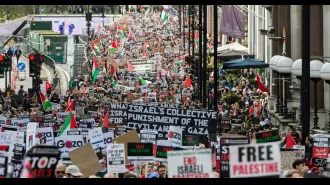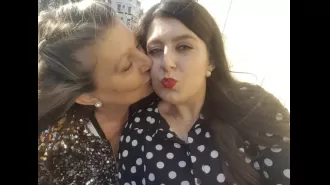Possible paraphrase: The looming Middle East conflict that nobody desires may finally ignite.
12 children killed in rocket attack in Israeli-occupied area, tensions rise.
July 29th 2024.

In May, Amos Hochstein, the US President Joe Biden's representative for maintaining peace between Israel and Hezbollah, spoke in a webinar about his biggest concern. He expressed worry that a misjudgment or unforeseen event could lead to a devastating war. He feared that a bus full of innocent children or another civilian target could be struck, forcing both sides to retaliate and escalate the conflict. Despite the fact that neither side wants a full-scale war, Hochstein's worst fear came to pass on Saturday evening in the Israeli-occupied Golan Heights.
According to Israel, a rocket launched by Hezbollah from southern Lebanon hit a soccer field in the Druze town of Majdal Shams, killing twelve children who were participating in a training session. However, Hezbollah has denied responsibility for the attack. This raises the question of whether Hochstein's fears of a larger war will now become a reality.
In a recent interview with Israeli television, Israel's Foreign Minister Israel Katz predicted that an all-out war against Hezbollah is imminent. He also stated that the response to this tragedy will be severe. The US has expressed support for Israel's right to defend itself against terrorist attacks, but also hopes to avoid further escalation of the conflict.
So far, Israel's response to the attack has been relatively restrained, but it is expected that more strikes will follow. Former Israeli Prime Minister Naftali Bennett has stated that the only way to stop these attacks is to fight back and hit back harder. This sentiment is shared by many in Israel who are tired of hollow words and empty promises from the international community.
Efforts have been made to de-escalate tensions between Israel and Hezbollah, but with Iran's strong influence and large number of missiles aimed at Israel, the possibility of a devastating war looms over the region. Aaron David Miller, a senior fellow at the Carnegie Endowment for International Peace, warns that this conflict could also draw in other countries and potentially lead to a direct confrontation between the US and Iran.
Despite numerous incidents that have brought Israel and Hezbollah to the brink of war, both sides have always pulled back. In January, Israel took out a senior Hamas leader in Beirut, and in April, they killed a top commander in the Iranian Revolutionary Guards Corps in Damascus. Yet, all-out war has been avoided. However, the current situation cannot continue indefinitely. Thousands of Israelis have been displaced, and large areas of both northern Israel and southern Lebanon resemble ghost towns.
Secretary of State Antony Blinken believes that the best way to prevent a full-scale war between Israel and Hezbollah is to negotiate a ceasefire in Gaza. Talks to achieve this are set to resume soon. However, this would only be a temporary solution. Israel's ultimate goal is to completely remove the threat of Hezbollah, in accordance with a UN resolution from 2006. Israeli Defense Minister Yoav Gallant has stated that if the international community does not take action, Israel will take matters into their own hands.
Despite the strong rhetoric, domestic pressures, and escalating tensions, both Israel and Hezbollah seem to be hesitant to engage in a full-scale war. However, as Hochstein warned, sometimes wars begin even when leaders do not want them, simply because they have no other choice. The situation between Israel and Hezbollah remains tense, and the risk of a larger conflict looms over the region. Only time will tell if peace can be maintained or if war will become inevitable.
According to Israel, a rocket launched by Hezbollah from southern Lebanon hit a soccer field in the Druze town of Majdal Shams, killing twelve children who were participating in a training session. However, Hezbollah has denied responsibility for the attack. This raises the question of whether Hochstein's fears of a larger war will now become a reality.
In a recent interview with Israeli television, Israel's Foreign Minister Israel Katz predicted that an all-out war against Hezbollah is imminent. He also stated that the response to this tragedy will be severe. The US has expressed support for Israel's right to defend itself against terrorist attacks, but also hopes to avoid further escalation of the conflict.
So far, Israel's response to the attack has been relatively restrained, but it is expected that more strikes will follow. Former Israeli Prime Minister Naftali Bennett has stated that the only way to stop these attacks is to fight back and hit back harder. This sentiment is shared by many in Israel who are tired of hollow words and empty promises from the international community.
Efforts have been made to de-escalate tensions between Israel and Hezbollah, but with Iran's strong influence and large number of missiles aimed at Israel, the possibility of a devastating war looms over the region. Aaron David Miller, a senior fellow at the Carnegie Endowment for International Peace, warns that this conflict could also draw in other countries and potentially lead to a direct confrontation between the US and Iran.
Despite numerous incidents that have brought Israel and Hezbollah to the brink of war, both sides have always pulled back. In January, Israel took out a senior Hamas leader in Beirut, and in April, they killed a top commander in the Iranian Revolutionary Guards Corps in Damascus. Yet, all-out war has been avoided. However, the current situation cannot continue indefinitely. Thousands of Israelis have been displaced, and large areas of both northern Israel and southern Lebanon resemble ghost towns.
Secretary of State Antony Blinken believes that the best way to prevent a full-scale war between Israel and Hezbollah is to negotiate a ceasefire in Gaza. Talks to achieve this are set to resume soon. However, this would only be a temporary solution. Israel's ultimate goal is to completely remove the threat of Hezbollah, in accordance with a UN resolution from 2006. Israeli Defense Minister Yoav Gallant has stated that if the international community does not take action, Israel will take matters into their own hands.
Despite the strong rhetoric, domestic pressures, and escalating tensions, both Israel and Hezbollah seem to be hesitant to engage in a full-scale war. However, as Hochstein warned, sometimes wars begin even when leaders do not want them, simply because they have no other choice. The situation between Israel and Hezbollah remains tense, and the risk of a larger conflict looms over the region. Only time will tell if peace can be maintained or if war will become inevitable.
[This article has been trending online recently and has been generated with AI. Your feed is customized.]
[Generative AI is experimental.]
0
0
Submit Comment





